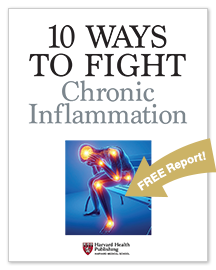Sodium/potassium ratio important for health
Sodium is often blamed for boosting blood pressure while potassium is praised for keeping it in check. It really doesn't make sense to look at these two minerals separately, though, since they work in tandem throughout the body. The ratio of sodium to potassium in the diet may be more important than the amount of either one alone.
Our Paleolithic hunter-gatherer ancestors took in about 11,000 milligrams (mg) of potassium a day from fruits, vegetables, leaves, flowers, roots, and other plant sources, and well under 700 mg of sodium. That's a sodium-to-potassium ratio of 1 to 16. Today, we get more sodium (3,400 mg) than potassium (2,500 mg), for a ratio of 1.36 to 1.
To continue reading this article, you must log in.
Subscribe to Harvard Health Online Plus (HHO+) to unlock expert-backed health insights, personalized tools, and exclusive resources to feel your best every day.
Here’s what you get with your HHO+ membership:
- Unlimited access to all Harvard Health Online content
- 4 expertly curated newsletters delivered monthly
- Customized website experience aligned to your health goals
- In-depth health guides on topics like sleep, exercise, and more
- Interactive features like videos and quizzes
- Members-only access to exclusive articles and resources
I’d like to subscribe to HHO+ for $4.99/month to access expert-backed content to help make smart, informed decisions about my well-being.
Sign Me UpAlready a member? Login ».
Disclaimer:
As a service to our readers, Harvard Health Publishing provides access to our library of archived content. Please note the date of last review or update on all articles.
No content on this site, regardless of date, should ever be used as a substitute for direct medical advice from your doctor or other qualified clinician.















